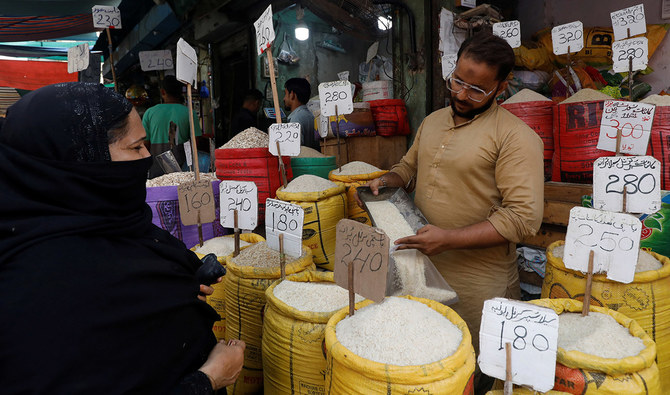ISLAMABAD: Pakistan Prime Minister Shehbaz Sharif said on Saturday that a charter of economy was the “only way forward” for the political leadership to achieve prosperity for the Pakistani people, a day after the cash-strapped government presented budget for the next fiscal year.
PM Sharif’s government, which succeeded that of former premier Imran Khan, has struggled with an unprecedented economic downturn since taking over last year, with talks with the International Monetary Fund (IMF) for the revival of the $6 billion bailout package yielding no result since December.
The draft budget envisaged $50.4 billion for the next fiscal year, starting July 1, a significant increase from last year’s budget, aiming for a 6.5 percent deficit and allocating approximately 50 percent for interest payments.
“The economy direly needs reforms, which, in turn, can be undertaken in a stable political environment, for economic development is intrinsically linked to political stability,” Sharif said on Twitter.
“It is here that the Charter of Economy appears to be the only way forward for our political parties to achieve prosperity for our people.”
Sharif said the making of Budget 2023-24 was particularly a difficult task in view of the persistent challenges arising out of the floods-related relief and rehabilitation, global supply chain disruptions and geostrategic upheavals.
“Never-ending headwinds of political instability created by Imran Niazi damaged the economy and created uncertainty, as the country remained on the boil for well over a year,” he added.
Khan, who was ousted in a parliamentary no-trust vote last year, has since launched a campaign against his political rivals, demanding snap nationwide polls. The ex-premier dissolved two provincial legislatures in an attempt to pressure the central government into announcing countrywide elections.
The political upheaval has compounded the countries the economic woes, with record inflation, fiscal imbalances and critical levels of reserves that cover barely a month of imports.
Sharif said a more balanced budget that levied no new tax could not have been possible within the existing constraints.
“Budget (FY23-24) represents the beginning of the process to fix the economy’s long-term ailments. The coalition government has prioritized the right areas that have the potential to spur economic growth, attract investment and make the economy self-sufficient,” he said.
“Mindful of the impact of inflation, the government has provided relief to public sector employees and pensioners in the form of pay raise of up to 35 percent and 17.5 percent respectively, and increased minimum wage to Rs. 32000.”
Pakistan is currently in talks with bilateral creditors to restructure its debt, the cash strapped country’s finance minister said on Friday.
Pakistan’s IMF program ends this month with about $2.5 billion in funds yet to be released as it struggles to strike an agreement with the lender.
Bilateral creditors made up $37 billion of Pakistan’s debt in the fiscal year 2021, out of which $23 billion is owed to China, according to an IMF country report released last year.
“We are in the process of engaging bilateral lenders to restructure debt,” Finance Minister Ishaq Dar said in televised comments after the budget on Friday.
“No haircuts will be made... Interest will be serviced, and principal payments will be staggered.”
















